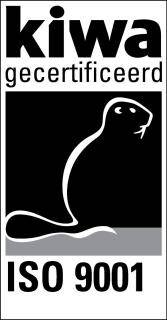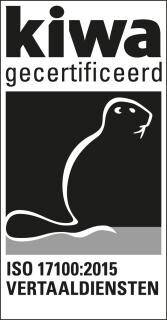
Translating ads? 7 tips for an international Google Ads campaign
Many entrepreneurs and companies use search engine advertising to generate more leads. The costs of AdWords are often lower than advertising in newspapers and magazines. You can also decide who gets to see your ads much more precisely. Advertising is also an ideal way to bring attention to your services or products abroad.
A well-translated advertisement is very important to achieve success abroad. You could translate simple texts yourself or using a machine translator. But the text you use for professional purposes needs to have the highest possible quality.
Do you want to translate your Google Ads advertisements? In this blog, we give [X] tips for an international Google Ads campaign.
- Translating keywords
- Good landing page
- Setting up campaigns
- Translations of English terms
- Language differences
- Localisation
- Don’t use machine translation
1. Translating keywords
You’ve done extensive keyword research, or had this done, for your Dutch advertisements. A lot of time and money has gone into this, and this has led to you running successful ads. This makes it very tempting to translate these keywords one-to-one.
However, one-to-one translation of keywords is not recommended. Keywords that have a high search volume with a low competition score in Dutch don’t necessarily have this in your target language. Because of this, your translated advertisement might have much poorer results than your Dutch ads.
Another thing to consider is that one word can have several meanings. Take the Dutch word ‘bank’ for example. It is both a piece of furniture you can sit on and a building where you can withdraw or deposit money. Further, a given word can also be context-dependent. Despite the fact that the chosen keyword exactly matches your products or services, the search engine results might not.
2. Good landing page
The actual translation of your ads is only half the battle. The landing page should also be well-translated for the best possible result. The landing page affects the Quality Score of your advertisements. A higher score means you will be displayed in a higher position in the search engines for a lower bid.
A well-translated landing page not only has an effect on your Quality Score, but visitors also get a better understanding of what your products or services mean or involve. The visitor is less likely to click away because they don’t understand the page or the text does not read well.
3.Setting up campaigns
Try to set up your international campaigns in the same way as your Dutch campaigns. This makes it easier to compare the campaigns with each other. You can use the Dutch campaign as a benchmark for your international campaigns.
Do you want to advertise in Belgium too? Set up a separate campaign for this. Although Flemish and Dutch are similar, there are differences. In the Netherlands, the informal form of address is often used, while the Flemish prefer the formal pronoun. There are also words with different meanings. Setting up a separate campaign makes it easy for you to incorporate these differences.
4. Translations of English terms
Many companies like to use English terms or phrases. Consider the well-known slogan “no cure, no pay”, for example. In English, this slogan is rarely used and might not be well understood. For the best translation, the slogan should be translated as “no win, no fee”. It is therefore important to check whether the English terms you use in your campaigns actually have the same meaning in English, or whether you need to translate them.
5. Language differences
Take language differences into account when setting up an international AdWords campaign. In Germany, they use a sharp-S but it is not used in the German-speaking part of Switzerland. There, they write a double S instead. This difference could for example cause the character limit of your text ad to be exceeded.
There are also language differences to be identified between British and American English, for example. Spanish is also slightly different in every Spanish-speaking country. This also applies to French.
6.Localisation
In addition to translating advertising texts, it is also important to localise them. Localisation involves making the advertisements suitable for use in other countries and regions. The cultural norms and values of the given region are taken into account.
7. Don’t use machine translation
As you have read in the tips above, a lot is involved in producing high-quality, well-translated AdWords advertisements. Because of this do not use a machine translation for your translations: take a professional approach!
AgroLingua’s translators have experience translating ads. They know exactly what is needed for a good AdWords translation.
Use the translators at AgroLingua for your translations
Do you need high quality ad translations that take your target audience and target language into account? And do you see the added value of using a translation agency?
Look no further than AgroLingua. We specialise in translations for the agricultural, horticultural, livestock, food, and related sectors. And we always consider the specific terminology used in various languages. Are you curious about our translation services and what we can do for you? Please contact us for more information.
Terug naar blogs




.png)

